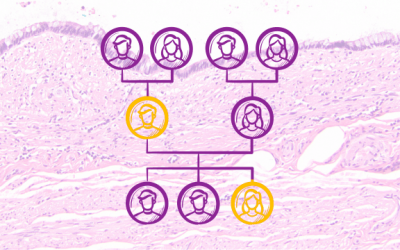HIPEC stands for hyperthermic intraperitoneal chemotherapy. It is a cancer treatment approach where heated chemotherapy drugs are delivered directly into the abdominal cavity after cancer surgery.

Some medical professionals think that HIPEC is a controversial procedure for several reasons.
- Lack of high-level evidence:
Most studies on HIPEC are retrospective case series. Few randomized controlled trials have been done comparing HIPEC to standard treatment. This has led to debates over its actual benefit and criticism that it is mainly performed on highly selected patients. - Complexity and cost:
HIPEC is a complex, expensive procedure requiring advanced resources and surgical/oncologic expertise. This has limited its widespread adoption and raised questions about whether costs outweigh benefits for certain conditions. - Morbidity and mortality:
Perioperative morbidity and mortality rates of 3-5% have been reported for HIPEC. Although lower than other major oncologic surgeries, some argue these rates are unacceptable given the unclear benefit. - Lack of consensus indications:
Although the evidence is clear for pseudomyxoma peritonei, there is no universal agreement on which cancer types and stages can benefit most from HIPEC. Selection criteria vary between treatment centres based on experience and available evidence. - Pressurized intraperitoneal aerosol chemotherapy (PIPAC):
PIPAC is a newer variant of HIPEC that uses pressurized aerosol chemotherapy instead of heated chemotherapy solution. Small studies suggest PIPAC has lower toxicity and equal-improved efficacy versus HIPEC for some tumours.
HIPEC remains an important option for some patients with advanced cancers, particularly those with peritoneal surface malignancies such as pseudomyxoma peritonei and appendix cancers. Indeed, it is the gold standard of care for these conditions. It is important for patients to discuss the risks and benefits of HIPEC with their medical team to determine whether it is the right option for them.
More FAQs
My dad has pseudomyxoma peritonei. Should I have my appendix out?
If a blood relative has been diagnosed with PMP, you may be wondering if you should have your appendix removed as a preventative measure.
Just how rare is PMP?
PMP is identified by Eurordis as a rare or “orphan” disease (one which affects less than 1 in 2000 people).
What to pack for your hospital stay
One of the questions we get asked a lot and features heavily in our support groups is “What do I need to bring into hospital with me?”.
References
HIPEC in advanced epithelial ovarian cancer:...
Vermorken JB, van Dam P, Brand A. HIPEC in advanced epithelial ovarian cancer: Why is there controversy? Current Opinion in Oncology. 2020;32(5):451-458. doi:10.1097/cco.0000000000000659
Clinical efficacy and safety of hyperthermic intraperitoneal chemotherapy in colorectal cancer...
Zhao P-yue, Hu S-dong, Li Y-xuan, et al. Clinical efficacy and safety of hyperthermic intraperitoneal chemotherapy in colorectal cancer patients at high risk of peritoneal carcinomatosis: A systematic review and meta-analysis. Frontiers in Surgery. 2020;7. doi:10.3389/fsurg.2020.590452
Outcomes in peritoneal carcinomatosis from appendiceal goblet cell carcinoma...
Zambrano-Vera K, Sardi A, Munoz-Zuluaga C, et al. Outcomes in peritoneal carcinomatosis from appendiceal goblet cell carcinoma treated with cytoreductive surgery and hyperthermic intraperitoneal chemotherapy (CRS/HIPEC). Annals of Surgical Oncology. 2019;27(1):179-187. doi:10.1245/s10434-019-07932-5
HIPEC for ovarian cancer: A controversial discussion
Friedrich M, Friedrich D, Kraft C, Kuhn W, Rogmans C. HIPEC for ovarian cancer: A controversial discussion. Ovarian Cancer – Updates in Tumour Biology and Therapeutics [Working Title]. May 2021. doi:10.5772/intechopen.97587
Consensuses and controversies on Pseudomyxoma Peritonei: A review of the published consensus statements and Guidelines
Lin Y-L, Xu D-Z, Li X-B, et al. Consensuses and controversies on Pseudomyxoma Peritonei: A review of the published consensus statements and Guidelines. Orphanet Journal of Rare Diseases. 2021;16(1). doi:10.1186/s13023-021-01723-6
Written by: the Pseudomyxoma Survivor editorial team



